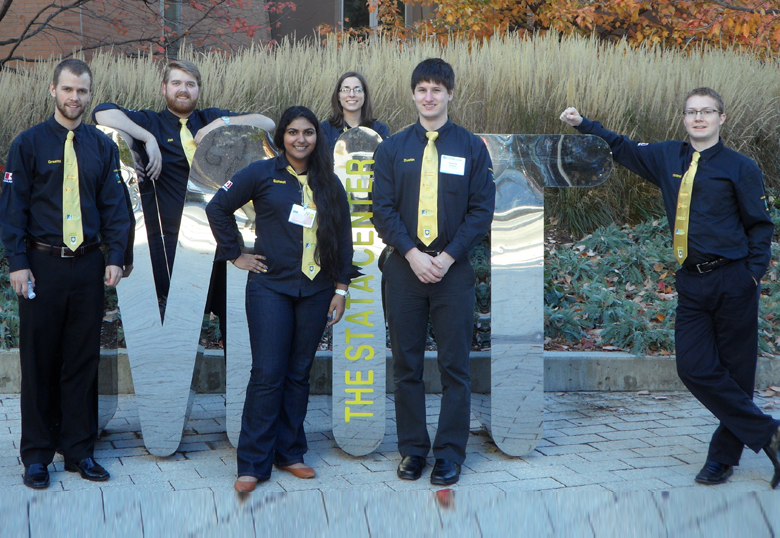The University of Lethbridge’s International Genetically Engineered Machine (iGEM) team captured two prominent awards at the iGEM 2013 World Championship Jamboree, Nov. 1-4 in Cambridge, Mass.
Fresh off claiming the top prize in the North American Jamboree in Toronto last month, the U of L team once again showed it was at the top of the North American class and continues to be one of the world leaders in the study of synthetic biology.

“I am very proud of the results they achieved on the world level,” says team leader Dr. Hans-Joachim Wieden, Director of the Alberta RNA Research and Training Institute at the U of L and Innovates Centre of Research excellence Chair of Bioengineering. “The World Jamboree was dominated by the European teams, but we presented very well and the awards we received were well earned.”
The U of L grabbed the Best Poster prize in the Overgrad classification, and also collected the Security Commendation, an overall award that debuted this year.
“I’m especially excited about the security award. It was brand new this year and shows how we are a world leader in this aspect of the research,” says Wieden. “The application of security protocols to the science of synthetic biology is becoming more and more important as we continue to advance the field.”
The U of L team’s project included the development of a bioengineering part that compresses genetic information – essentially working like a zip drive. Every gene needs DNA, but there is only so much DNA that will fit in a cell. This novel part may allow future bioengineers more flexibility in their work. Additionally, the team developed software that quickly determines what DNA is compatible to compress together.
Team member Harland Brandon said the research they conducted around the social implications of their project was lauded at the North American Jamboree and set their project apart from others.
“Our team sought to ensure that our part could not be misused to hide dangerous genes,” says Brandon (BSc’13), a first-year master’s student and Winston Churchill High School graduate. “We hypothesized that our part could be used to hide dangerous sequences, such as Ricin or Ebola, from gene synthesis companies. We then took it a step further and actually consulted with gene synthesis companies, U of L Risk and Safety Services and even a representative from the Federal Bureau of Investigations (FBI). Not only do we see our project benefitting the field, but we found through our critical analysis that the potential for misuse is not possible.”
Just six Canadian universities qualified for the World Jamboree, with the University of Lethbridge and the University of Calgary the only teams to capture awards.
iGEM is the premier competition for young scientists interested in the emerging field of synthetic biology, which is quickly leading to new discoveries that will diversify key economic sectors such as pharmaceutical, agriculture, medical diagnostics, clean energy and resource extraction.
“iGEM enables students to get their first taste of research,” says Wieden. “They understand the goal of the project, and learn how to think outside of the box, troubleshoot and apply their knowledge to create scientific discoveries. All of this unlocks students’ creativity.”
The University of Lethbridge team consisted of Dustin Smith (BSc ’13), Graeme Glaister, Jenna Friedt (BSc ’11, MSc’13), Suneet Kharey, Harland Brandon (BSc ’12) and Zak Stinson.
To view full results from the iGEM 2013 World Championship Jamboree, see this website.
